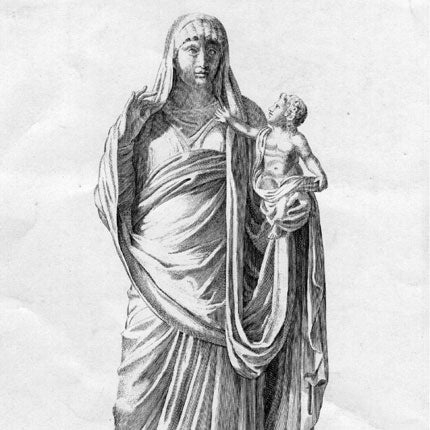The First Ladies of Rome: The Women Behind the Caesars, By Anneliese Freisenbruch
Friends, Romans, countrywomen...

As Anneliese Freisenbruch admits in this excellent history, most of the Ancient Roman women discussed in her book "would never have come to historical notice if it were not for the men they married or the sons they gave birth to", such was the patriarchal society in which they existed.
There is hardly anything written by women of the era, and too many contrasting versions from male playwrights for Freisenbruch to be definitive. But these more sceptical portraits of women, often either vilified or venerated, are very welcome.
Livia, the wife of Octavian Caeser (who went on to become the Emperor Augustus), had her image projected publicly, on coins and in marble. Frugal and responsible, Rome's first empress was held up as an example of Roman womanhood, and played a part in her husband's political affairs, but gossip after his death hinted at a darker side to Livia. Her step-daughter, Julia, was a popular good-time girl; her daughter, Agrippina Major, became a formidable mother of nine (among them Caligula) who once held a fort against a German army.
Freisenbruch's conclusion is perhaps not so surprising: patriarchal societies don't much like it when strong women make their mark, and do their best to denigrate them after their deaths. But the stories Freisenbruch tells of political machinations and literary aspirations are among the most fascinating of any historical period.
Join our commenting forum
Join thought-provoking conversations, follow other Independent readers and see their replies
Comments